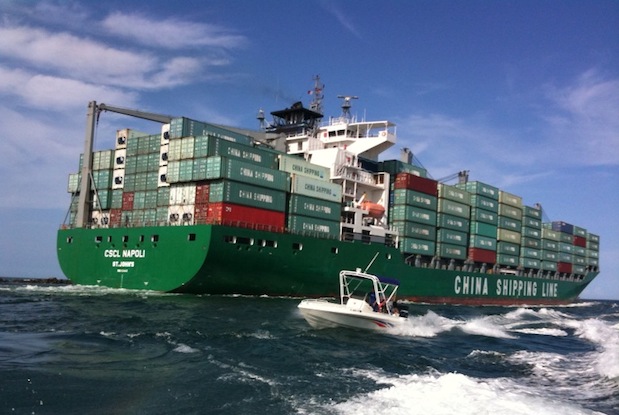This article is adapted from AQ’s most recent issue, “Fixing Brazil.” To receive the print edition at home, subscribe here.
Foreign trade will play an important role in Brazil’s economic recovery. With the cooling of internal demand, the international market is critical for revitalizing national industry — a central element of job and income creation.
The importance of exports to the economy is evident not only in the creating a trade surplus and greater insertion in the international economy, but also through indirect effects, including a boost in foreign investment, the internationalization of domestic companies, the exchange of technology and know-how, and an increase in innovation. Brazil’s industrial competitiveness also depends on its ability to take advantage of economies of scale and access strategic raw materials, especially in the context of fragmentation in production processes of global supply chains.
Brazil’s current participation in international trade does not reflect the size of its economy. Brazil is the ninth largest economy in the world according to nominal GDP, but only the 25th largest in terms of exports and imports of merchandise trade. Despite Brazil’s substantial involvement in regional trade agreements, its trade ties with countries outside of Latin America are modest. Furthermore, existing trade agreements focus primarily on the elimination of tariffs.
The Brazilian government has recently adopted an active trade policy, designed in coordination with the private sector. As examples of this new policy, we have signed Brazil’s first international investment and government procurement agreements, worked to expand trade agreements and build ties with the countries of the Pacific Alliance, advanced regulatory agreements and trade facilitation with the U.S., and are engaged in ongoing negotiations with Mexico and the European Union.
For this strategy to be successful, it must be combined with structural changes, such as tax and labor reform. It is also necessary to bolster infrastructure and logistics and eliminate bureaucratic hurdles that limit our trade competitiveness.
Brazil has become a global reference in trade facilitation. We ratified the World Trade Organization’s Trade Facilitation Agreement and are working tirelessly to implement it. Through the Portal Único de Comércio Exterior, a single-window system designed to streamline import/export processes and customs transit, we are creating more efficient, integrated and harmonized procedures between all public and private participants in foreign trade. Once it is implemented, we will have reduced the length of the import/export process by 40 percent, positioning Brazil among the OECD countries.
Bolstering foreign trade strengthens the vitality and dynamism of an economy. To set ourselves on a new path of economic growth, it is imperative to prioritize the initiatives already underway and implement new policies to address the challenges that produce the so-called “Brazil cost.” Even more important, we must recognize that foreign trade is an essential and permanent element of the country’s development strategy, independent of cyclical factors. This view should be shared by all sectors of Brazilian society — not only the government but the private sector and civil society as well. By taking these steps, we will be able to guarantee a future of development and sustainable economic growth for our country.
—
Godinho is Secretary for Trade at the Ministry of Development, Industry and Foreign Trade in Brasília





